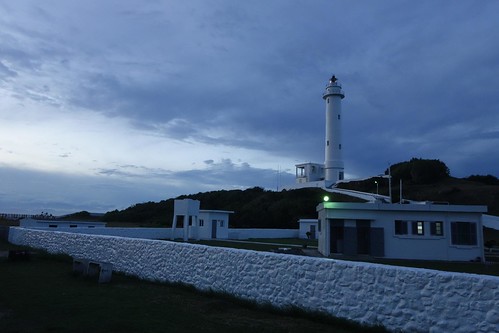Good job the diplomatic truce and ECFA totally stopped Beijing blocking TW on international stage and getting in the way of signing FTAs with Malaysia and Australia. Oh wait... Beijing meddling in Taiwan's trade pacts...Readers will recall those heady days of 2009 and 2010, when the Ma government was promising that the ECFA trade agreement would enable Taiwan to sign FTAs with other countries. As recently as 2013 the WTO came out with a book in favor of ECFA, saying it would help Taiwan sign FTAs. Of course, the failure of Ech!-Fah! to result in FTAs because Beijing wouldn't permit them was totally foreseeable. D'uh:
Taiwan's economics minister Duh Tyzz-jiun has accused the mainland's government of meddling in other countries' efforts to sign trade pacts with the island, according to a local media report. The minister said countries that were likely to enter into substantive trade talks with Taiwan this year had decided to hold off after Beijing expressed concerns about their engagement with Taiwan, the Central News Agency reported yesterday, citing an interview Duh gave with the United Daily News group. Duh said Beijing had obstructed Taiwanese efforts to reach or sign free-trade agreements with at least two countries,...In the run-up to the signing of ECFA Ma emphasized again and again that ECFA would lead to FTAs and that we needed to tie ourselves to China, marginalize ourselves even further, in order to get FTAs. As I pointed out at the time, that was shock doctrine policy-making at work:
1. Hurry! The rest of Asia, including China, is forming a free trade region!Yea, verily, remember when TV ads and the President himself said that without ECFA Taiwan would be "isolated like North Korea"? The logic of his "argument" is encapsulated in this example:
2. We'll be locked out of this if we don't get on board now!
3. Our economy is in the tank! We must do something now!
4. Claims that opponents' objections are "ideological"
President Ma stressed that the signing of FTAs (Free Trade Agreements) had become a global trend. If Taiwan hesitated to first sign an ECFA with the Mainland, Japan and the ASEAN countries would not sign FTAs with Taiwan. In the past eight years, the DPP administration had made no progress in signing FTAs with other countries because the DPP had refused to sign any kind of economic agreement with the Mainland.That last comment is technically right but morally wrong -- the DPP had an agreement all wrapped up with Singapore, but China nixed it.
It goes without saying that the usual suspects were rah-rahing Taiwan into FTA oblivion. Yes, the Establishment was clueless. AmCham stated in its 2009 Taiwan White Paper that “the conclusion of ECFA would pave the way for Taiwan to participate in regional trade blocs and enter into bilateral FTAs with additional trading partners.” The European Chamber of Commerce said in its 2009-2010 Position Paper: “The sooner Taiwan signs ECFA with China, the quicker political impediments to other countries signing economic agreements with Taiwan will be removed.” If that wasn't fantastic enough, some of this ECFA=FTAs stuff rose to amazing heights of fantasy...
Bwahahahaha! As early as 2011 WSJ was observing that ECFA had turned out to be a failure on the FTA front. By 2012 the Ma Administration was pushing greater progress on ECFA to compensate for the failure of FTAs to materialize.
As I noted in posts at the time (Don't Mistake My Blue-Swayed Schmooze, just read the whole post, it is as germane now as it was when it was written in 2009; this one is also good ), there was only one problem with this combination of rosy prediction and devastating threats conveyed in the foreign and domestic press:
Imagine how this would look had the article presented a key piece of information: China has consistently refused to promise that Taiwan can have FTAs with other nations. Its real goal, argue some analysts, is to force Taiwan firms to relocate to China to take advantage of China's FTAs.That's right, all this yakitty-yak-yak existed to cover up the simple fact that China had never promised not to interfere. The goal of ECFA was always political and economic: to hollow out Taiwan's productive industries and gut its economy, since that is a powerful resource for Taiwan independence and Taiwan democracy.
EFCA + FTAs was always cargo cult economics. We've built it, and they haven't come.
______________
Daily Links:
- Taiwan Best Trip Contest: Win money for traveling.
- New pier on Taiping Island to be completed by 2015
- CPI blog: Taiwan's relations with Slovenia
- Factory closures push Thai workers out of Taiwan
- Hu closing gap in Taichung:
According to polls conducted by Taiwan Indicators Survey Research, a private polling firm, Hu was lagging his major rival Lin Chia-lung of the Democratic Progressive Party (DPP) by 10.4 percentage points in late May, but the gap was narrowed significantly to 2.4 percentage points by the end of September.
- Taiwan to crack down on Chinese fishing vessels stealing and poaching. For the one millionth time since I've been here.
[Taiwan] Don't miss the comments below! And check out my blog and its sidebars for events, links to previous posts and picture posts, and scores of links to other Taiwan blogs and forums!


